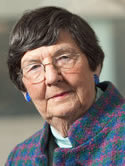Pathways for psychosocial care of cancer survivors Journal Article
| Authors: | Holland, J. C.; Reznik, I. |
| Article Title: | Pathways for psychosocial care of cancer survivors |
| Abstract: | Today, the growing number of survivors from many sites of cancer necessitates that thought be given to ways that ensure follow-up psychosocial care and its integration into ongoing medical surveillance. The establishment of standards of care together with evidence- and consensus-based clinical practice guidelines have provided a highly effective method of enhancing quality care for treatment of cancer. There remain, however, major problems in dissemination and application of these guidelines on the clinical level. The National Comprehensive Cancer Network (NCCN) formed a Panel on Distress Management that developed the first set of consensus-based standards for psychosocial care and clinical practice guidelines specific to cancer illnesses. This article proposes the extension of their concepts to cancer survivors. A model is presented that can assist oncologists and multidisciplinary teams in busy ambulatory settings to more readily identify those survivors who are distressed, whose quality of life is impaired, and who may benefit from further psychological evaluation and treatment. Three groups of cancer survivors are identified for whom pathways for psychosocial care should be defined and developed: 1) survivors with physical sequelae, often resulting in significant neuropsychologic and physical consequences; 2) survivors with psychological sequelae or psychiatric disorders that interfere with functioning and quality of life; and 3) survivors with subsyndromal symptoms who have no identified physical or psychiatric sequelae, but who may nonetheless need help integrating the cancer experience into their lives to increase a sense of purpose, direction, and well being. A rapid screening tool for distress could be used at the time of follow-up visits to oncologists or physicians to identify patients with psychological, social, or spiritual concerns and could serve as a pathway for evaluation and referral for psychosocial counseling. Treating distress in these areas is to be viewed as an integral part of surveillance for survivors, and pathways to ensure integration are important. © 2005 American Cancer Society. |
| Keywords: | cancer chemotherapy; cancer survival; treatment outcome; leukemia; fatigue; conference paper; cancer patient; drug megadose; neoplasms; quality of life; breast cancer; oncology; hodgkin disease; infertility; cancer survivor; survivors; psychological aspect; sexuality; statistical analysis; comorbidity; scoring system; cognition; distress syndrome; posttraumatic stress disorder; psychosocial care; stress; cognitive defect; symptomatology; social aspect; screening test; bone marrow transplantation; testis cancer; guidelines; gynecologic cancer; mental health; patient counseling; body image; psychotherapy; stress, psychological; hospital anxiety and depression scale; models, psychological; psychiatric diagnosis; psychosocial distress |
| Journal Title: | Cancer |
| Volume: | 104 |
| Issue: | 11 Suppl. |
| ISSN: | 0008-543X |
| Publisher: | Wiley Blackwell |
| Date Published: | 2005-12-01 |
| Start Page: | 2624 |
| End Page: | 2637 |
| Language: | English |
| DOI: | 10.1002/cncr.21252 |
| PUBMED: | 16258931 |
| PROVIDER: | scopus |
| DOI/URL: | |
| Notes: | --- - "Cited By (since 1996): 42" - "Export Date: 24 October 2012" - "CODEN: CANCA" - "Source: Scopus" |
Altmetric
Citation Impact
BMJ Impact Analytics
Related MSK Work




